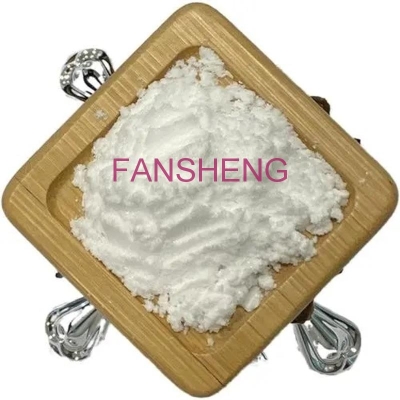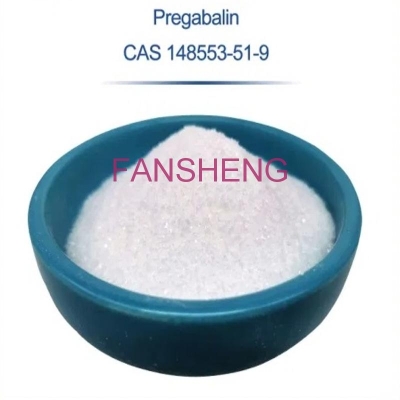-
Categories
-
Pharmaceutical Intermediates
-
Active Pharmaceutical Ingredients
-
Food Additives
- Industrial Coatings
- Agrochemicals
- Dyes and Pigments
- Surfactant
- Flavors and Fragrances
- Chemical Reagents
- Catalyst and Auxiliary
- Natural Products
- Inorganic Chemistry
-
Organic Chemistry
-
Biochemical Engineering
- Analytical Chemistry
- Cosmetic Ingredient
-
Pharmaceutical Intermediates
Promotion
ECHEMI Mall
Wholesale
Weekly Price
Exhibition
News
-
Trade Service
Click on the blue letters to pay attention to us.
Mitochondria are vital to neurons: the distribution, content and fission of mitochondria in dendrites determine the number of synapses; axon mitochondria regulate short-term synaptic plasticity and neurotransmitter release
.
Therefore, neurons need to maintain an appropriate number of mitochondria to support the integrity of synaptic structure and function
.
There are mitochondrial changes in the brain in neuropsychiatric diseases: the chronic stress model of rodents causes changes in the morphology of brain mitochondria and depression-like behaviors
.
Knockout of the mitochondrial protein BCL-2 can cause anxiety-like behavior
.
On October 6, 2021, the Zheng Li research team of the National Institutes of Health revealed that chronic stress causes mitochondrial defects in the amygdala, which in turn induces anxiety-like behaviors
.
Changes in mitochondrial morphology after chronic stress The amygdala is the hub for encoding and processing fear and danger information, and the ventral hippocampus is involved in stress response and emotional response
.
Researchers found that after 30 days of chronic social frustration, the number of mitochondria in the basolateral amygdala (BLA) and central amygdala (CeA) of the amygdala subregions of mice decreased, the size became smaller, and the mitochondrial membrane potential decreased; The mitochondrial morphology of the ventral hippocampus did not show this change
.
Mitochondrial membrane potential is generated when electrons move along the mitochondrial electron transport chain (METC) during oxidative phosphorylation
.
The researchers found that the expression of cytochrome C oxidase, a key enzyme of METC, decreased in both BLA and CeA, but did not change in the ventral hippocampus
.
Mitochondria are the main place to produce ATP and are important organelles that promote cell energy conversion and participate in cell apoptosis
.
Through the ATP fluorescent probe experiment, it was found that the intracellular ATP levels of BLA and CeA decreased after chronic stress for up to 1 month
.
However, 10 days of chronic frustration stress does not cause changes in the morphology and function of mitochondria (chronic social frustration stress is an animal model widely used to simulate depression)
.
The number of mitochondria is determined by the two opposite processes of mitochondrial formation and mitochondrial autophagy
.
The production of mitochondria involves the replication process of mitochondrial DNA (mtDNA)
.
Researchers found that after experiencing the above-mentioned chronic stress, it promotes the replication process of mtDNA in the amygdala of mice
.
Interestingly, this increase in the replication process actually promotes the mutation of mtDNA
.
On the other hand, the process of mitochondrial autophagy in the amygdala of mice is also enhanced after chronic stress.
These results indicate that chronic stress not only destroys the process of mitochondrial formation, but also promotes the process of its disappearance.
The final result is that the number of mitochondria is greatly reduced
.
The morphological changes of mitochondria after knocking out PINK1 and Parkin PINK1 (protein kinase 1 induced by phosphatase and tensin homologs) and Parkin (E3 ubiquitin ligase) are two key proteins involved in mitochondrial autophagy
.
PINK1 knockout mice and Parkin knockout mice did not change the number of mitochondria in the amygdala after 30 days of chronic stress, and did not affect the process of mtDNA replication and mitochondrial autophagy
.
This indicates that the mitochondrial autophagy mediated by PINK1 and Parkin is a key factor in the loss of mitochondria caused by chronic stress
.
Under normal circumstances, mice exhibit anxiety-like and depression-like behavioral disorders after experiencing chronic stress
.
However, PINK1 knockout mice and Parkin knockout mice did not exhibit anxiety-like behaviors after experiencing chronic stress
.
There is a possibility that the loss of mitochondria may cause anxiety-like behavioral disorders
.
This possibility was confirmed in subsequent experiments: injecting a virus that destroys mitochondria into the amygdala brain area can obviously cause anxiety-like behavior
.
In summary, this article found that chronic stress causes mitochondrial damage, which selectively triggers the PINK1-Parkin mitochondrial autophagy pathway in the amygdala brain area
.
This increase in mitochondrial autophagy leads to the excessive disappearance of mitochondria, and ultimately reduces the synaptic plasticity between BLA-BNST (striated nucleus terminalis) and induces anxiety-like behavior
.
[References] 1.
https://doi.
org/10.
1016/j.
neuron.
2021.
09.
008 The pictures in the text are from the references
Mitochondria are vital to neurons: the distribution, content and fission of mitochondria in dendrites determine the number of synapses; axon mitochondria regulate short-term synaptic plasticity and neurotransmitter release
.
Therefore, neurons need to maintain an appropriate number of mitochondria to support the integrity of synaptic structure and function
.
There are mitochondrial changes in the brain in neuropsychiatric diseases: the chronic stress model of rodents causes changes in the morphology of brain mitochondria and depression-like behaviors
.
Knockout of the mitochondrial protein BCL-2 can cause anxiety-like behavior
.
On October 6, 2021, the Zheng Li research team of the National Institutes of Health revealed that chronic stress causes mitochondrial defects in the amygdala, which in turn induces anxiety-like behaviors
.
Changes in mitochondrial morphology after chronic stress The amygdala is the hub for encoding and processing fear and danger information, and the ventral hippocampus is involved in stress response and emotional response
.
Researchers found that after 30 days of chronic social frustration, the number of mitochondria in the basolateral amygdala (BLA) and central amygdala (CeA) of the amygdala subregions of mice decreased, the size became smaller, and the mitochondrial membrane potential decreased; The mitochondrial morphology of the ventral hippocampus did not show this change
.
Mitochondrial membrane potential is generated when electrons move along the mitochondrial electron transport chain (METC) during oxidative phosphorylation
.
The researchers found that the expression of cytochrome C oxidase, a key enzyme of METC, decreased in both BLA and CeA, but did not change in the ventral hippocampus
.
Mitochondria are the main place to produce ATP and are important organelles that promote cell energy conversion and participate in cell apoptosis
.
Through the ATP fluorescent probe experiment, it was found that the intracellular ATP levels of BLA and CeA decreased after chronic stress for up to 1 month
.
However, 10 days of chronic frustration stress does not cause changes in the morphology and function of mitochondria (chronic social frustration stress is an animal model widely used to simulate depression)
.
The number of mitochondria is determined by the two opposite processes of mitochondrial formation and mitochondrial autophagy
.
The production of mitochondria involves the replication process of mitochondrial DNA (mtDNA)
.
Researchers found that after experiencing the above-mentioned chronic stress, it promotes the replication process of mtDNA in the amygdala of mice
.
Interestingly, this increase in the replication process actually promotes the mutation of mtDNA
.
On the other hand, the process of mitochondrial autophagy in the amygdala of mice is also enhanced after chronic stress.
These results indicate that chronic stress not only destroys the process of mitochondrial formation, but also promotes the process of its disappearance.
The final result is that the number of mitochondria is greatly reduced
.
The morphological changes of mitochondria after knocking out PINK1 and Parkin PINK1 (protein kinase 1 induced by phosphatase and tensin homologs) and Parkin (E3 ubiquitin ligase) are two key proteins involved in mitochondrial autophagy
.
PINK1 knockout mice and Parkin knockout mice did not change the number of mitochondria in the amygdala after 30 days of chronic stress, and did not affect the process of mtDNA replication and mitochondrial autophagy
.
This indicates that the mitochondrial autophagy mediated by PINK1 and Parkin is a key factor in the loss of mitochondria caused by chronic stress
.
Under normal circumstances, mice exhibit anxiety-like and depression-like behavioral disorders after experiencing chronic stress
.
However, PINK1 knockout mice and Parkin knockout mice did not exhibit anxiety-like behaviors after experiencing chronic stress
.
There is a possibility that the loss of mitochondria may cause anxiety-like behavioral disorders
.
This possibility was confirmed in subsequent experiments: injecting a virus that destroys mitochondria into the amygdala brain area can obviously cause anxiety-like behavior
.
In summary, this article found that chronic stress causes mitochondrial damage, which selectively triggers the PINK1-Parkin mitochondrial autophagy pathway in the amygdala brain area
.
This increase in mitochondrial autophagy leads to the excessive disappearance of mitochondria, and ultimately reduces the synaptic plasticity between BLA-BNST (striated nucleus terminalis) and induces anxiety-like behavior
.
[References] 1.
https://doi.
org/10.
1016/j.
neuron.
2021.
09.
008 The pictures in the text are from the references







